First Amendment Freedoms Worksheet
The First Amendment Freedoms Worksheet is a valuable resource designed to engage students in understanding and discussing the rights and responsibilities outlined in the First Amendment of the United States Constitution. This worksheet is specifically tailored for middle and high school students, providing a focused exploration of the five freedoms protected by the First Amendment and their impact on society.
Table of Images 👆
More Other Worksheets
Kindergarten Worksheet My RoomSpanish Verb Worksheets
Cooking Vocabulary Worksheet
My Shadow Worksheet
Large Printable Blank Pyramid Worksheet
Relationship Circles Worksheet
DNA Code Worksheet
Meiosis Worksheet Answer Key
Art Handouts and Worksheets
7 Elements of Art Worksheets
What is the First Amendment?
The First Amendment to the United States Constitution guarantees the right to freedom of speech, religion, press, assembly, and petition. It protects individuals' fundamental rights to express themselves, criticize the government, practice their faith, gather peacefully, and advocate for change without government interference.
What are the five freedoms protected by the First Amendment?
The five freedoms protected by the First Amendment are freedom of religion, freedom of speech, freedom of the press, the right to peaceably assemble, and the right to petition the government for a redress of grievances.
What does freedom of speech entail?
Freedom of speech entails the right of individuals to express their opinions and ideas without fear of censorship or retribution from the government. It protects the freedom to express oneself, even if the ideas are controversial, offensive, or unpopular. This fundamental right allows for open discourse, the exchange of diverse viewpoints, and the ability to challenge authority, contributing to a democratic society where individuals can participate in public debate and hold those in power accountable.
How does freedom of religion apply to individuals?
Freedom of religion ensures that individuals have the right to practice their own beliefs, or to abstain from religion entirely, without interference from the government or others. This fundamental right allows individuals to worship as they choose, express their beliefs publicly, and participate in religious activities without fear of persecution or discrimination. These protections empower individuals to live according to their faith, or lack thereof, and to freely explore and develop their spiritual beliefs.
What does freedom of the press guarantee?
Freedom of the press guarantees the right of journalists to publish information and opinions without censorship or interference from the government or other authorities, allowing for a diverse range of viewpoints and ensuring transparency and accountability in society.
How does the First Amendment protect the right to peaceful assembly?
The First Amendment of the United States Constitution protects the right to peaceful assembly by guaranteeing the freedom of speech, religion, and the press, as well as the right of the people to peacefully assemble and petition the government for a redress of grievances. This means that individuals have the constitutional right to gather in public places, demonstrate, protest, and express their views and opinions without interference or suppression from the government.
How does the First Amendment protect the right to petition the government?
The First Amendment protects the right to petition the government by guaranteeing individuals the freedom to communicate their grievances and requests to the government without fear of retaliation or censorship. This includes the right to gather signatures for petitions, the right to submit petitions to public officials, and the right to seek redress for grievances through the formal channels of government. By safeguarding this fundamental right, the First Amendment ensures that individuals can participate in the democratic process and hold their government accountable.
What are the limits to freedom of speech?
While freedom of speech is a fundamental human right, it is not absolute and there are limitations aimed at protecting individuals and societies from harm. These limitations typically include prohibitions against hate speech, incitement to violence, defamation, obscenity, and speech that can lead to public disorder or jeopardize national security. It's important to strike a balance between free expression and the need to prevent harm or violations of the rights of others.
Can the government regulate or restrict freedom of assembly?
Yes, the government can regulate or restrict freedom of assembly under certain circumstances, such as for public safety reasons or to prevent violence or unlawful activities. However, any restrictions must be justified, narrowly tailored, and not unduly infringe upon individuals' rights to peacefully assemble and express their views. This is typically subject to review and oversight by the judiciary to ensure that constitutional rights are being upheld.
Can the government ever restrict the freedom of the press?
Yes, the government can restrict the freedom of the press under certain circumstances, such as cases involving national security or public safety threats. However, such restrictions must be clearly defined, necessary, proportionate, and in accordance with the law to protect the rights and freedoms of the press and ensure transparency and accountability in a democratic society.
Have something to share?
Who is Worksheeto?
At Worksheeto, we are committed to delivering an extensive and varied portfolio of superior quality worksheets, designed to address the educational demands of students, educators, and parents.

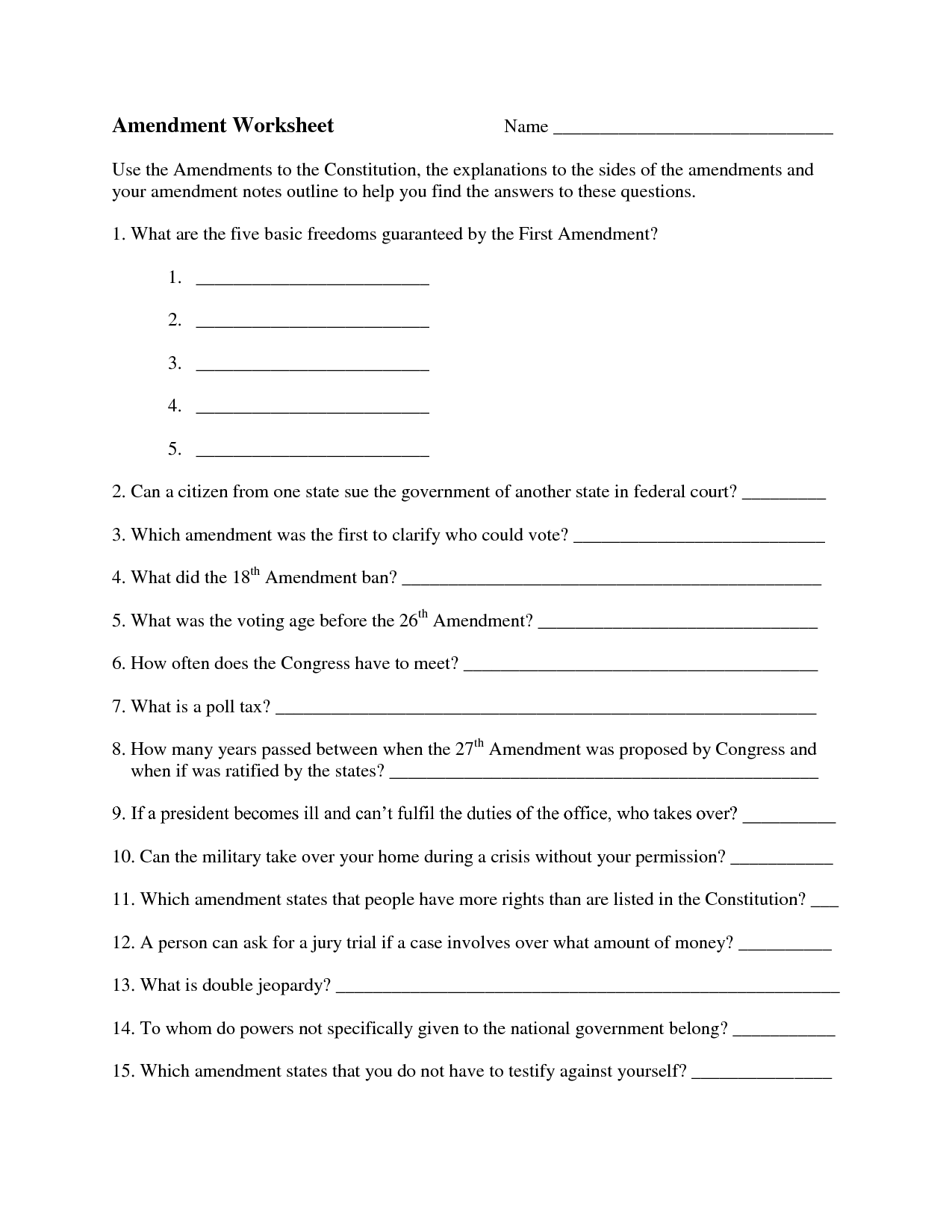



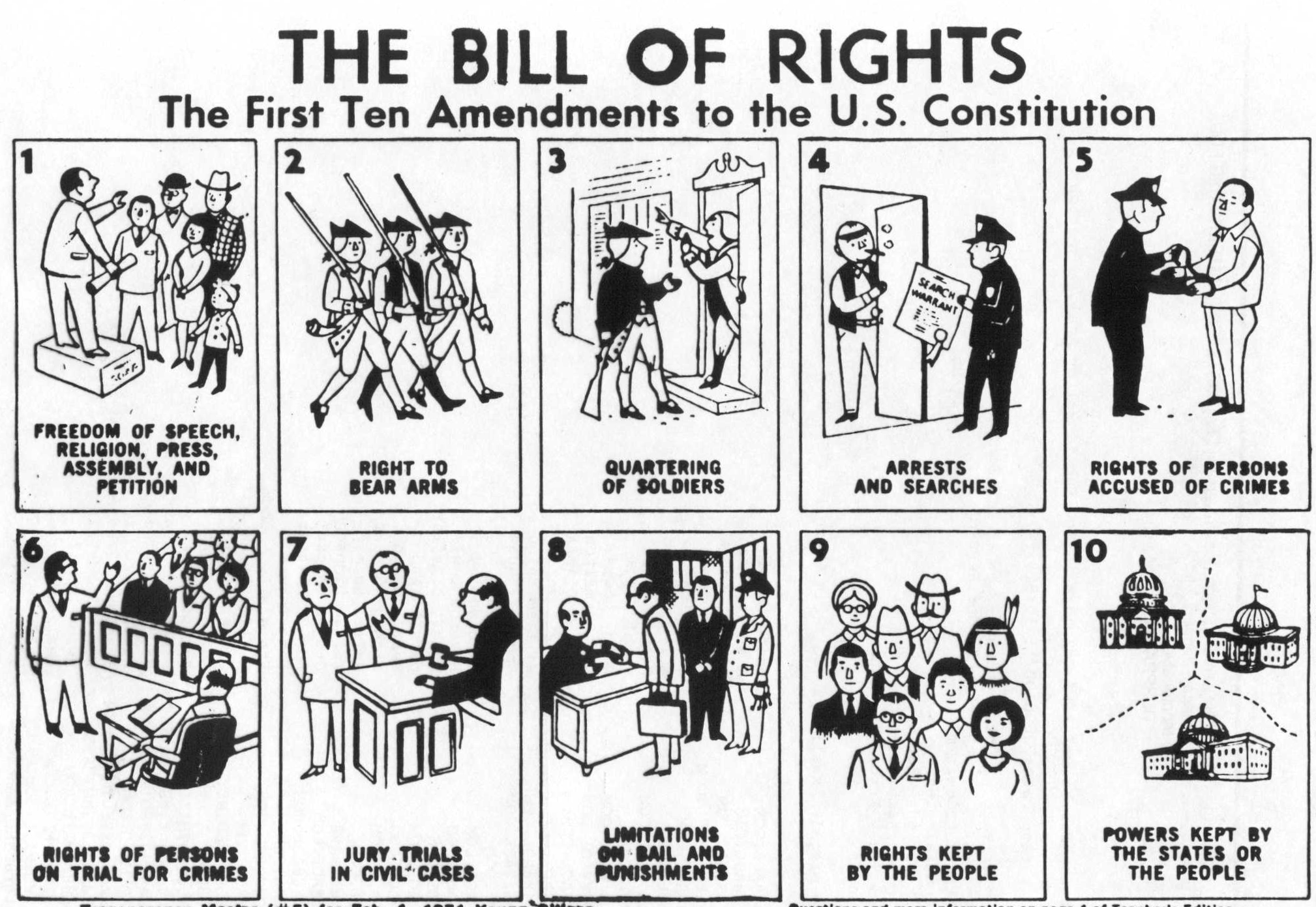
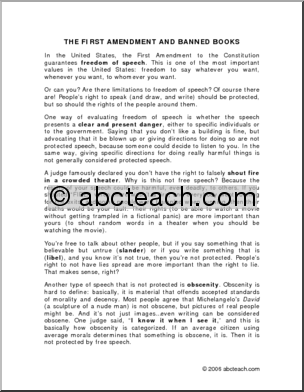
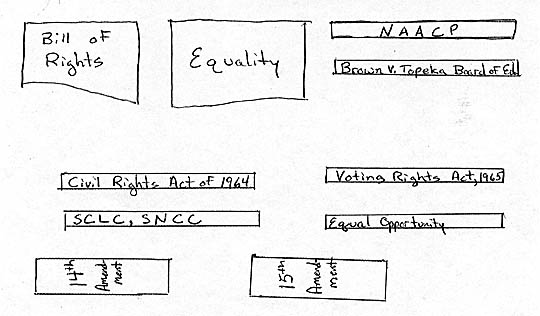
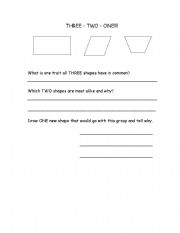
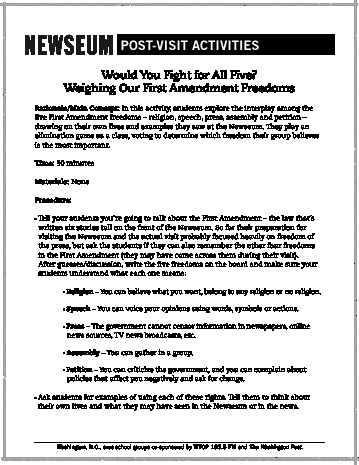
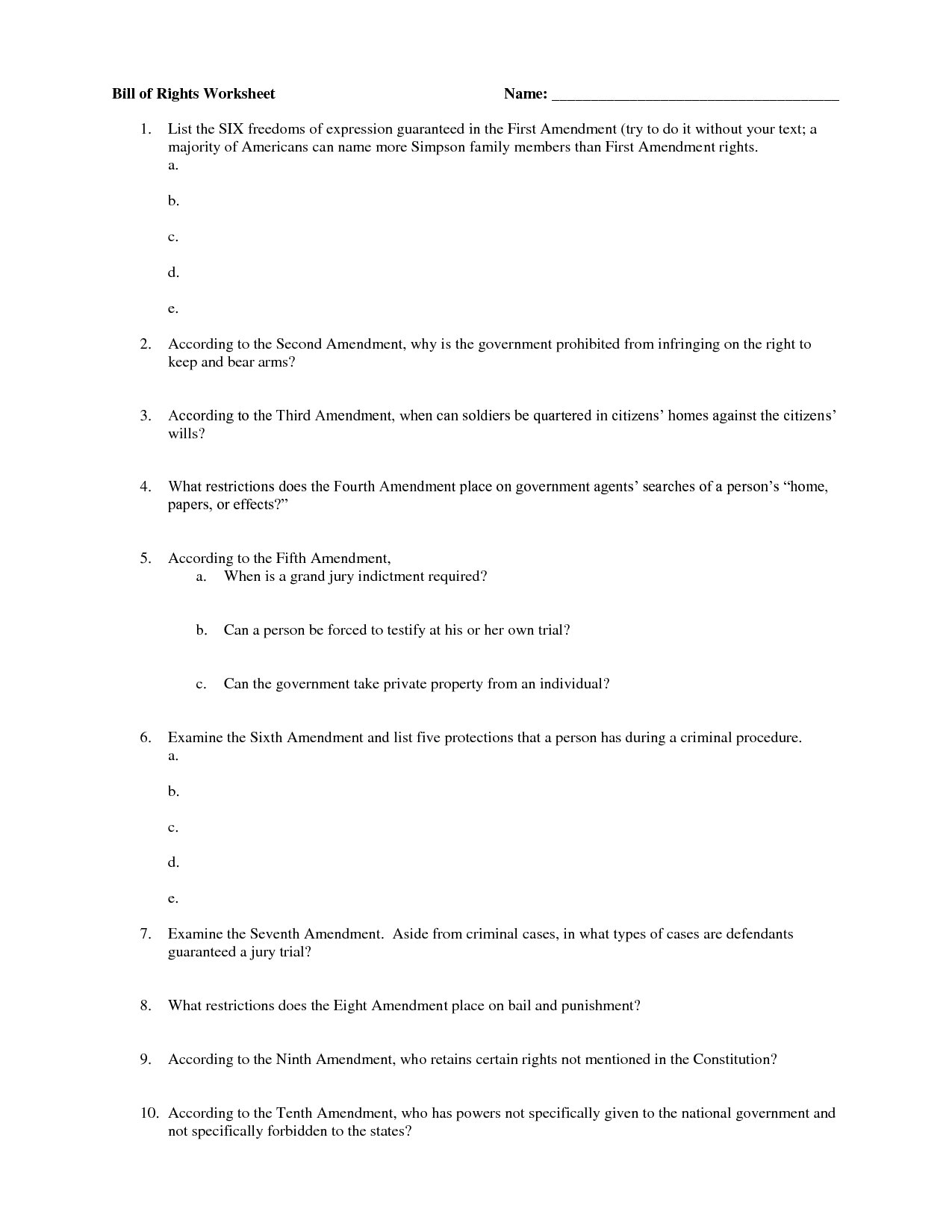
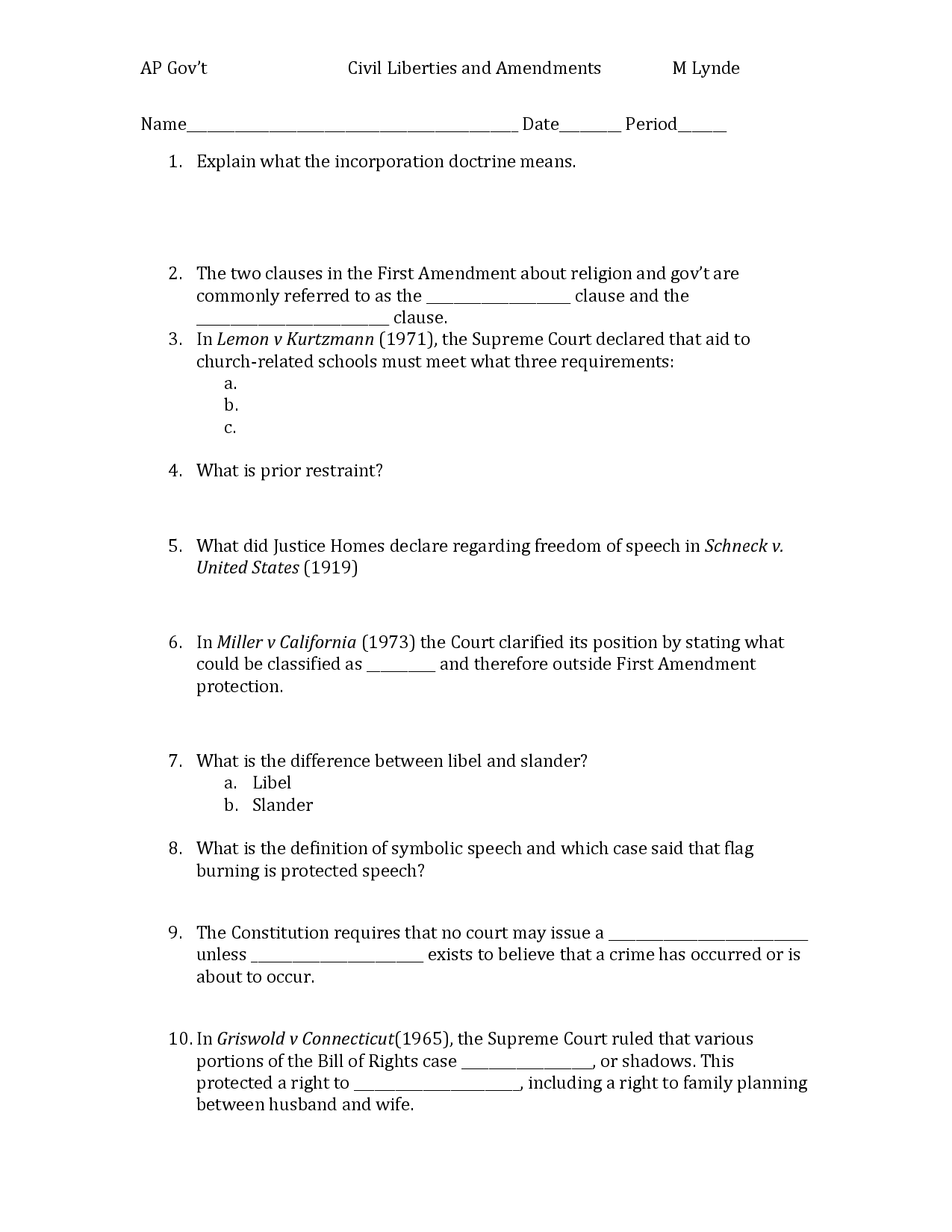
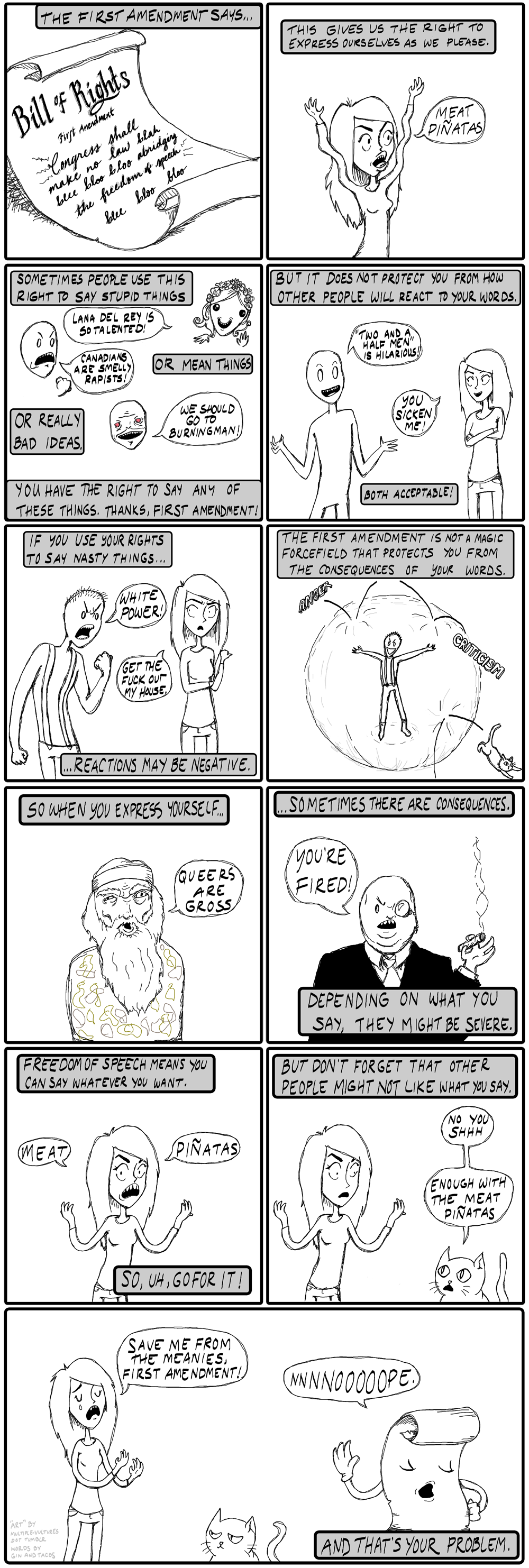














Comments